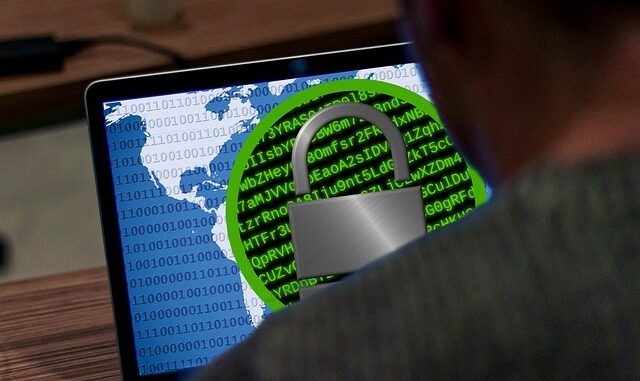
Summary
Brightline, a virtual mental health provider, agreed to a $7 million settlement in a class-action lawsuit related to the 2023 Fortra hack. The Clop ransomware group exploited a zero-day vulnerability in Fortra’s GoAnywhere software, compromising the data of nearly one million Brightline clients. Affected individuals can claim up to $5,000 for documented losses or receive a $100 cash payment, plus credit monitoring.
Reliability and uptime matter in healthcare TrueNAS provides 24/7 support when it counts.
** Main Story**
Brightline Pays $7M to Resolve Fortra Hack Lawsuit
The virtual mental health platform Brightline recently agreed to a $7 million settlement to resolve a class-action lawsuit arising from the 2023 Fortra data breach. This incident, part of a larger attack affecting over 130 organizations, saw the Clop ransomware group exploit a zero-day vulnerability in Fortra’s GoAnywhere managed file transfer (MFT) software. Brightline, specializing in mental health services for children and teens, used GoAnywhere, making them vulnerable to the attack. As a result, the protected health information (PHI) of nearly one million Brightline clients was compromised.
The Fallout and Lawsuit
In May 2023, Brightline notified approximately 964,000 individuals about the potential compromise of their personal data. This data included names, addresses, dates of birth, Social Security numbers, health plan information, and employer details. This notification sparked several lawsuits that eventually consolidated into a single class-action case in the U.S. District Court for the Southern District of Florida.
Plaintiffs accused Brightline of negligence, breach of fiduciary duty, breach of implied contract, and violations of state consumer protection laws. They argued that Brightline failed to implement adequate data security measures and protocols, leaving them vulnerable to a foreseeable cyberattack. Brightline, while not admitting wrongdoing, agreed to the $7 million settlement approved by a Florida judge.
Settlement Details and Broader Implications
The settlement provides two cash payment options for affected class members:
- Cash Payment A: Up to $5,000 for documented losses directly related to the data breach.
- Cash Payment B: A flat $100 payment.
Additionally, all settlement members will receive credit monitoring services. California residents have a separate subclass and are eligible for an additional $100 payment under California state law.
This settlement underscores the growing trend of data breach lawsuits against companies, especially in healthcare, following increasingly frequent and severe cyberattacks. The healthcare sector is particularly vulnerable due to the sensitive nature of the data it holds.
Healthcare Data Breaches: A Growing Concern
The healthcare industry remains a prime target for cyberattacks. Several factors contribute to this vulnerability:
- Valuable Data: PHI commands high prices on the black market, making it a lucrative target for cybercriminals.
- Interconnected Systems: Hospitals and healthcare providers rely on complex interconnected systems that can create multiple entry points for hackers.
- Resource Constraints: Smaller healthcare facilities often lack the resources to invest in robust cybersecurity measures.
Ransomware attacks and phishing scams are among the leading causes of healthcare data breaches. Ransomware encrypts data, holding it hostage until a ransom is paid, while phishing attacks trick individuals into revealing sensitive information like passwords and login credentials.
The Rising Cost of Data Breaches
Healthcare data breaches carry significant financial implications. Costs include:
- Regulatory fines: HIPAA violations can result in hefty fines for non-compliance.
- Legal fees: Defending against class-action lawsuits can be incredibly expensive.
- Reputational damage: Data breaches erode public trust and can lead to loss of patients.
- Remediation costs: Implementing improved security measures and providing credit monitoring to affected individuals adds to the financial burden.
These costs highlight the importance of proactive cybersecurity measures. Healthcare organizations must prioritize data security to protect patient information and avoid the financial and reputational consequences of a data breach.
Protecting Your Data: Steps to Take
While organizations bear the primary responsibility for safeguarding data, individuals can also take steps to protect their information:
- Strong Passwords: Use strong, unique passwords for all online accounts.
- Multi-Factor Authentication: Enable multi-factor authentication whenever possible for added security.
- Phishing Awareness: Be cautious of suspicious emails and avoid clicking on links or attachments from unknown senders.
- Credit Monitoring: Consider using credit monitoring services to detect any unauthorized activity.
Staying informed about data breaches and taking proactive measures can significantly reduce the risk of becoming a victim. As the digital landscape evolves, vigilance and proactive security measures are more important than ever.


So, Brightline is paying out, huh? Guessing “virtual” doesn’t mean invulnerable to very real cyberattacks! Maybe the $100 payout should come with a free therapy session to process the irony. I’d suggest strong passwords, but perhaps mental health professionals should be recommending “stronger” firewalls!
That’s a great point about the irony! It definitely highlights the need for comprehensive security measures, not just for virtual mental health platforms, but for all organizations handling sensitive data. It is a good idea that stronger firewalls become a basic necessity. Thanks for sparking this discussion!
Editor: MedTechNews.Uk
Thank you to our Sponsor Esdebe